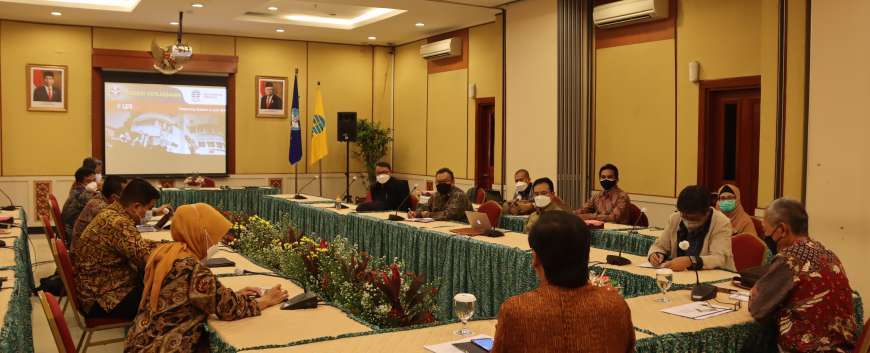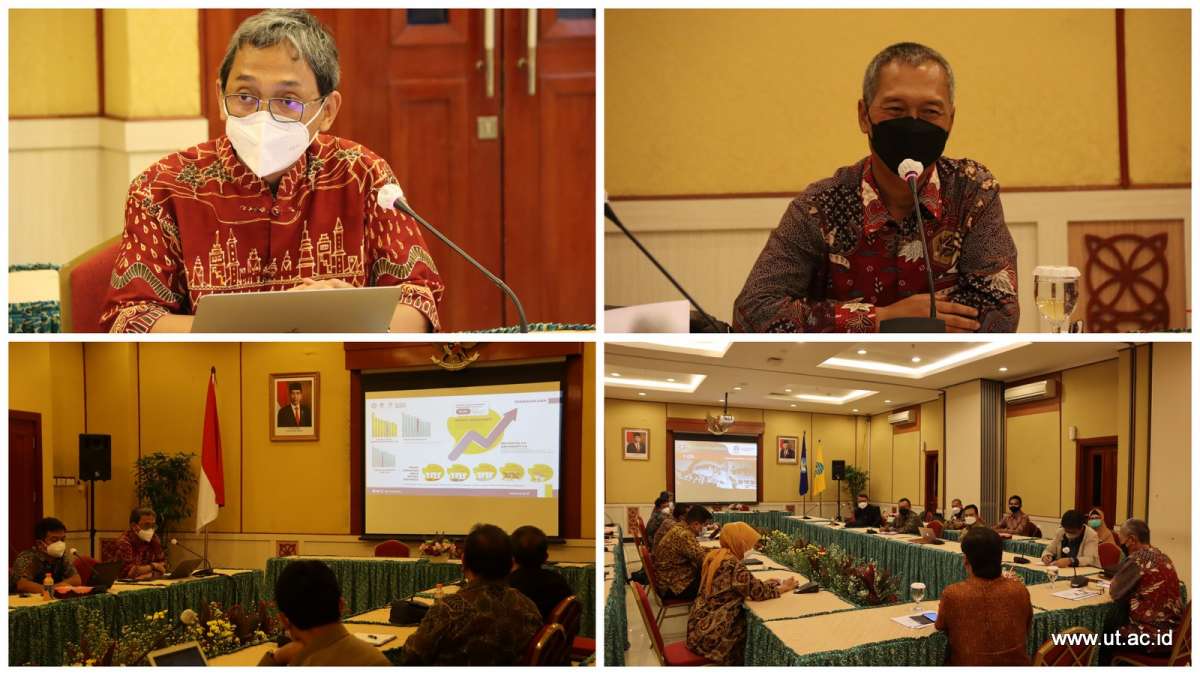- Posted by Khafi Mubegi
- 07 Jun 2021
- PUSAT
- Total View 0
UT and UPI’s Plan to Welcome the New Policy of Ministry of Education, Culture, Research, and Technology of the Republic of Indonesia
Indonesia Open University or Universitas Terbuka (UT) and the Education University of Indonesia or Universitas Pendidikan Indonesia (UPI) held a discussion on the planned cooperation with regard to the implementation that would anticipate the new policy of Ministry of Education, Culture, Research, and Technology of the Republic of Indonesia. The discussion was followed by the officials of both parties, and UT as the host was led by the Vice Rector for Academic Affairs, Dr. Mohamad Yunus, S.S., M.A. as UPI was led by the Vice Rector for Research, International Cooperation, and Business (RIKU), Prof. Dr. H. Adang Suherman, M.A. The activity was held in Wisma II Universitas Terbuka Building, on Sunday (6/6/2021) which complied with the applicable standard health protocols.
The activity began with the remarks by Dr. Mohamad Yunus, S.S., M.A., expressing his gratitude for the guests’ attendance who had spared their time to participate in the discussion. It was then followed by the speech by Prof. Adang, who thanked UT who was willing to be the host of the discussion and he expected that the event would provide some positive opportunities for both UT and UPI.
Furthermore, Head of Education Quality Assurance or Pusat Penjaminan Mutu Pendidikan UT, Dr. Ake Wihadanto, S.E., M.T., explained the initiation of the collaboration between UT and UPI, especially in the effort to realize the mandatory university study for the people of Indonesia. His idea is based on what this country is going to cope with in the future concerning the bonus of Indonesian demography. According to him, it has both challenges and opportunities. “It is our opportunity only once throughout a century or in a lifetime cycle of our nation that we have demographic bonus amid the challenges of the digital era, and the implication is that we would experience a sharp increase of productive age population more or less by 70.7 % of the total Indonesian population.” With such demographic bonus, it is predicted that Indonesia will be one of the upper-middle economic countries. On the other side, Indonesia has some problems related to the higher education participation figure which is relatively low. It is confirmed by the profile of the workforce age group in Indonesia which is still dominated by the graduates from the public senior high school or vocational senior high school (SMA-SMK) or lower.
Dr. Ake also said that, “it is necessary to have engineering or social engineering. One of them is in form of a policy on mandatory university education in order to improve the quality of human resources (HR) in Indonesia as one step further to anticipate the demographic bonus that will provide positive values for the development of Indonesia in the future." It is in line with the vision of the Golden Indonesia or Indonesia Emas 2045, which is to give birth to superior and competitive human resources.
Prof. Riswanda Setiadi, M.A., Ph.D, the Executive Secretary of UPI, illustrated briefly the UPI;s initiative to work together with UT in the efforts to jointly improve higher education quality in Indonesia. “In response to the expectation of the President of the Republic of Indonesia in order to provide higher education services comprehensively and with good quality, we are also offering a program called mandatory bachelor degree education. Nonetheless, I still feel that we need to talk about and further discuss this together with UT in order to put such expectation in reality under a quality program that will meet the expectation of Mister President.”







